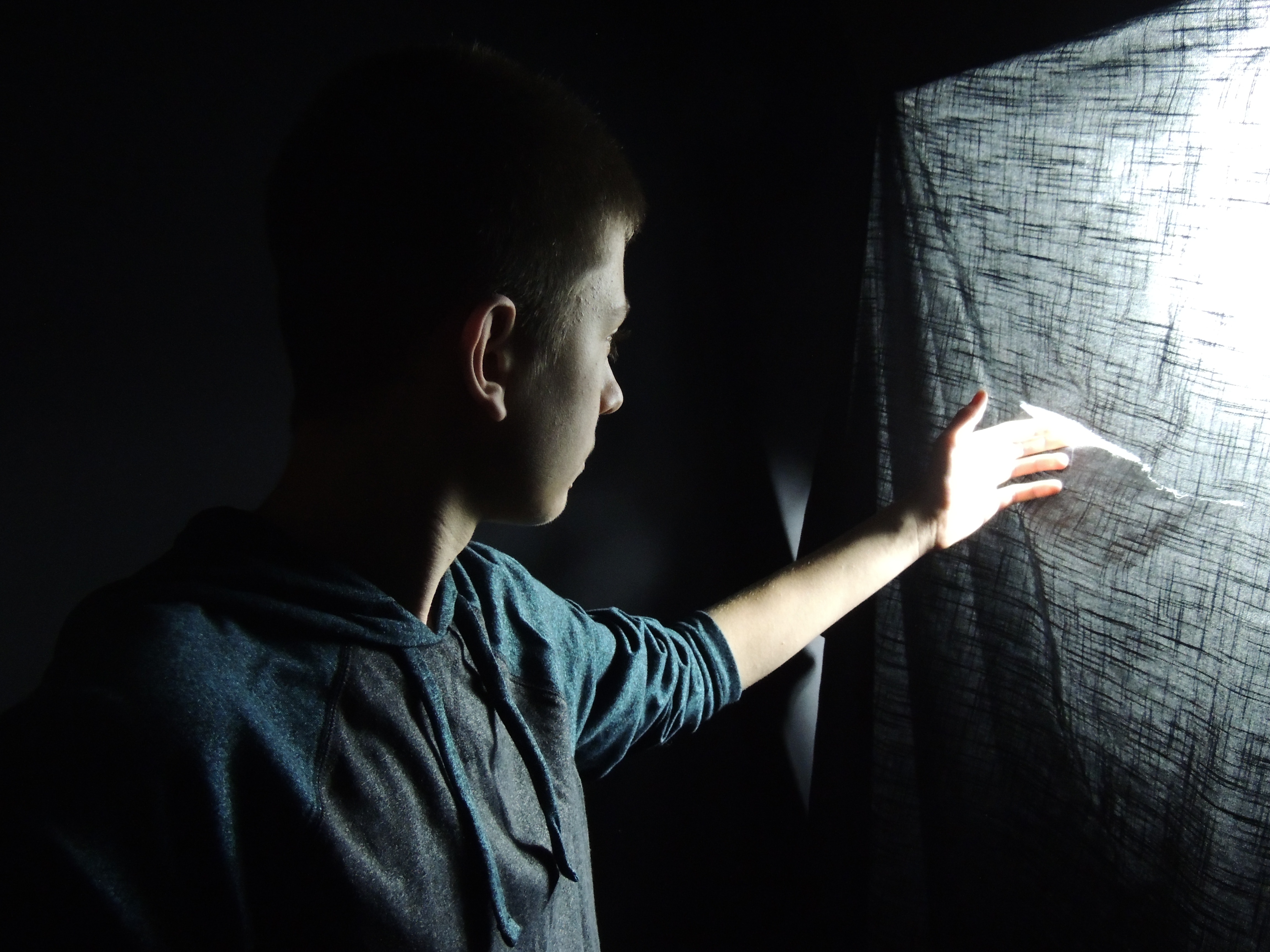
Nowadays 1,8 billion people leave in conflict affected areas and 244 million people have been displaced due to conflictual contexts.[1] The Global Peace Index of 2017, showed us that the global peacefulness has deteriorated by 2.14 per cent since 2008[2]. With ongoing conflicts in Myanmar, Syria, Iran, Colombia, Somalia- just to mention a few, we see not only a need for an immediate action to deter the conflicts but also the need to prevent conflicts. There is not a magic formula that can insure that conflicts can be prevented, as various factors need to be considered: social, political and climate context, history of the state, economic trends, access to resources, accessibility of the population to education etc., however, we can all agree that investments in military sectors rather than peace building (under 10 billion dollars[3]) it is not the answer we need.
In the last years, we have come to understand that peace[4]– in the sense of the absence of war/ violent conflict known as Negative Peace- it is not necessary sustainable, however, peace which includes development and growth opportunities has a higher possibility of being sustainable. The dependency between peace and development is known as Positive Peace- “the integration of human society” in the words of John Galtung. The Institute for Economics and Peace[5] identified eight pillars of positive peace which are yearly measured per country: 1) A Well-Functioning Government; 2) Sound Business Environment; 3) Equitable Distribution of Resources; 4) Equitable Distribution of Resources; 5) Acceptance of the rights of others; 6) Good Relations with Neighbors; 7) Free Flow of Information; 8)High Levels of Human Capital and 9)Low levels of Corruption.
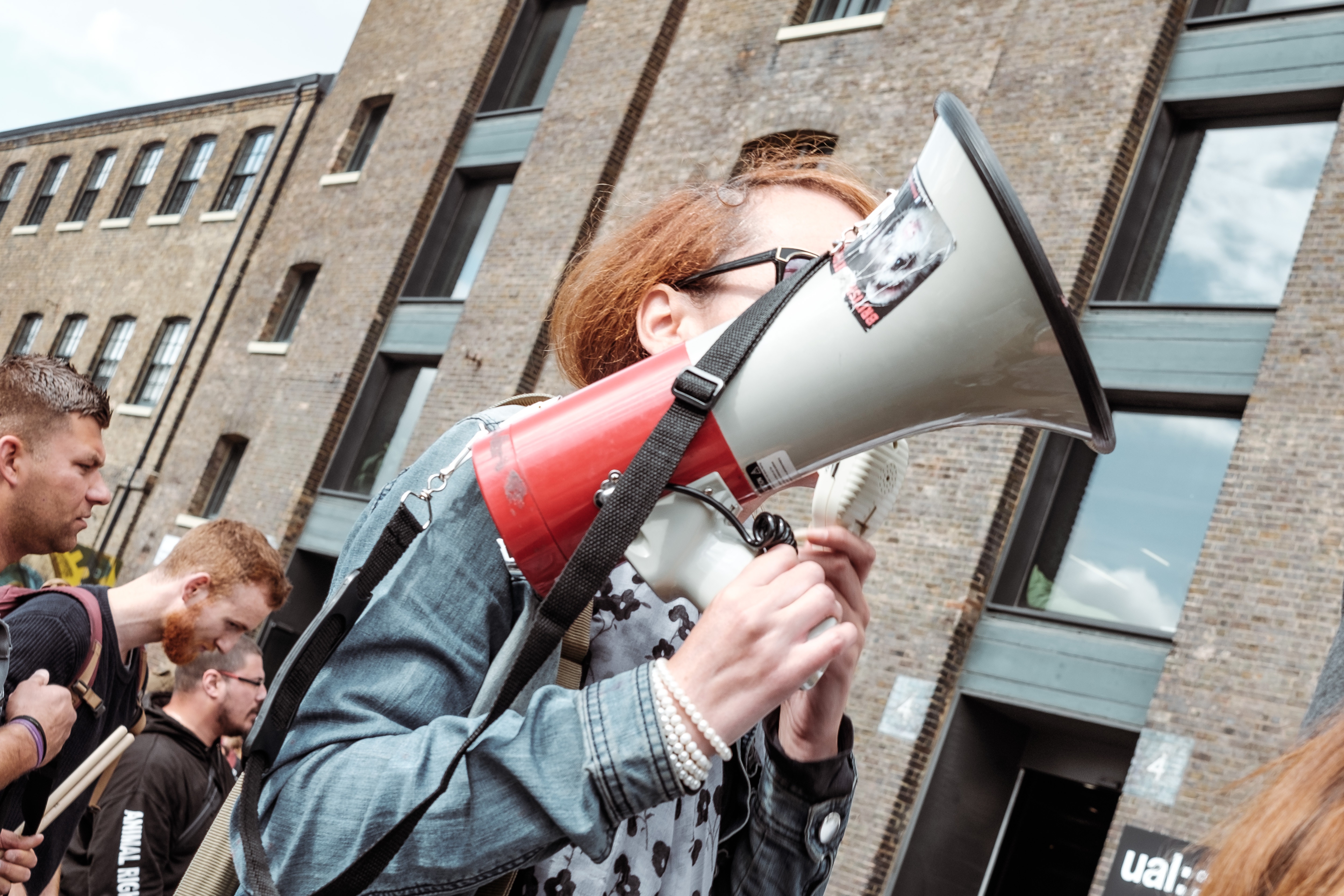
Although achieving high levels of development per each pillar may seem a long and hard process, each and every one of us, can contribute towards the improvement of the fifth pillar: Acceptance of the rights of others. In this sense, non-formal education methods and opportunities- offered by programmes such as Erasmus + and EYF- to exchange with people from other cultures, social backgrounds, different religions help increase tolerance, knowledge and understanding of the realities in other countries, play a major role in shaping perceptions and eliminating discrimination. Especially at the level of youth, international non-governmental organizations have been engaging young people in exchanges on different topics, inspiring them to be informed, to participate actively at local and international level. Young people are sources of incredible power that can add value and knowledge to so many fields, peace being one of these fields- young people have developed and implemented a series of activities that promote peace, for instance: developing an interactive map of peace agents – http://www.tgpcloud.org/p4p/index.php?m=youth ; training of youth able to mobilize a larger number of other young people 32 622- Youth Initiatives for Peace and Reconciliation project or PATRIR’s EduPace club. These are examples of actions that we can all promote, actively participate in and become agents of positive change and peacebuilding.
And you, what are you doing today, for a peaceful tomorrow?
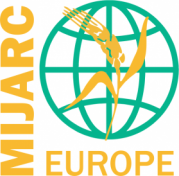
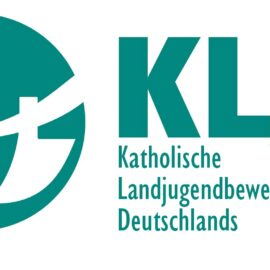
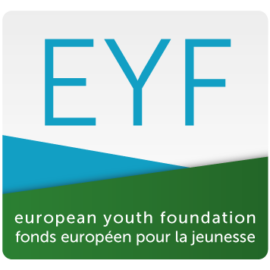
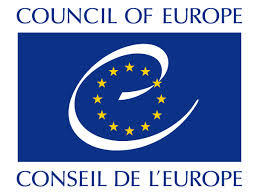
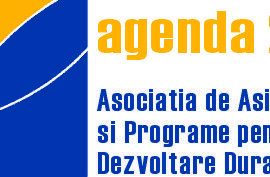
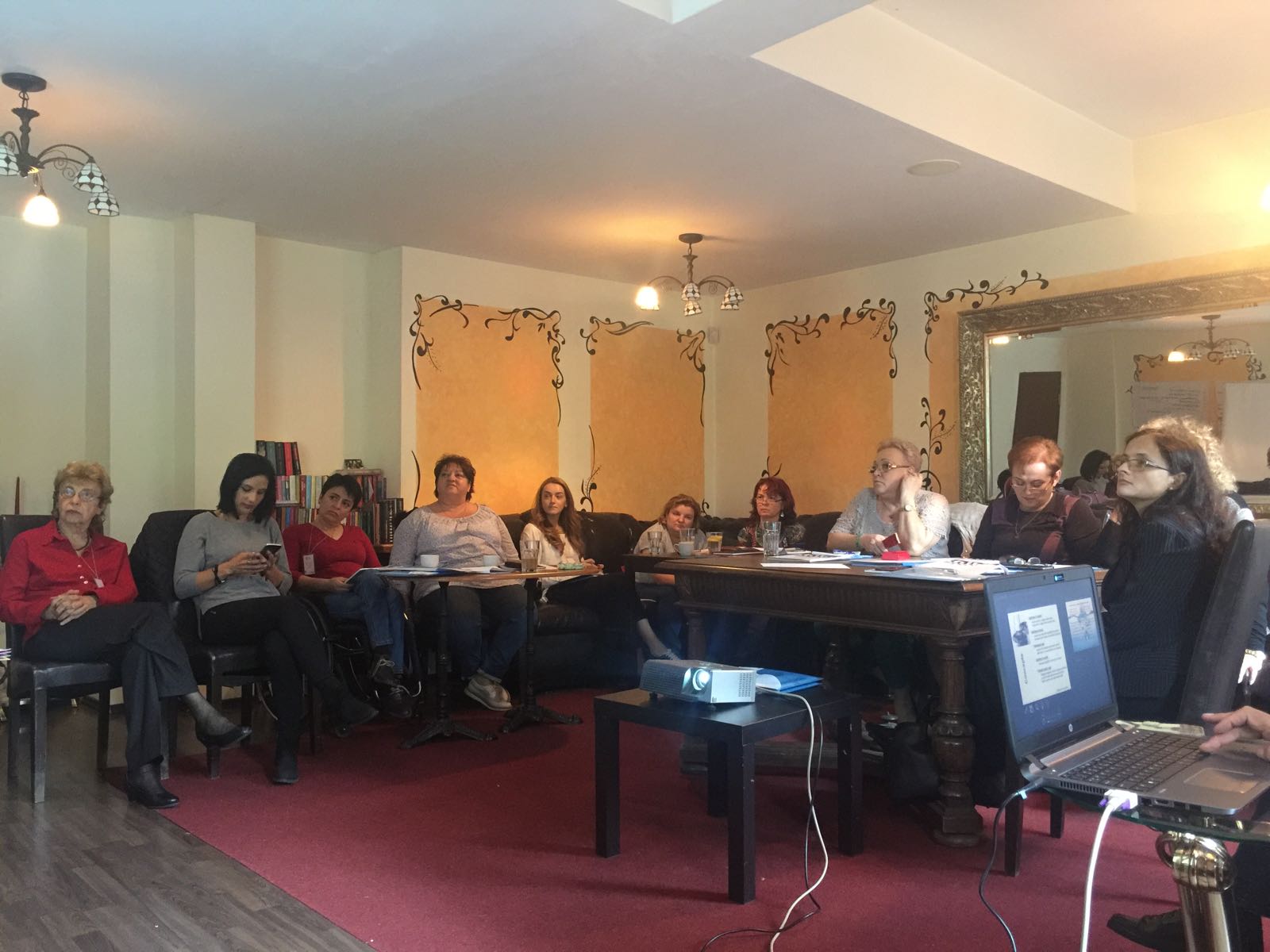 One of the main conclusions of the meeting was the importance of education, in formal and non-formal contexts, for both victims and authors of extremist acts. The representatives of the school inspectorates who were present at the meetings suggested that the topic could be approached by the Master teachers during the counselling classes. Another conclusion was that it would be very important if there were funds dedicated to organizing proper information/awareness-raising sessions or workshops/seminars with students of all ages.
One of the main conclusions of the meeting was the importance of education, in formal and non-formal contexts, for both victims and authors of extremist acts. The representatives of the school inspectorates who were present at the meetings suggested that the topic could be approached by the Master teachers during the counselling classes. Another conclusion was that it would be very important if there were funds dedicated to organizing proper information/awareness-raising sessions or workshops/seminars with students of all ages.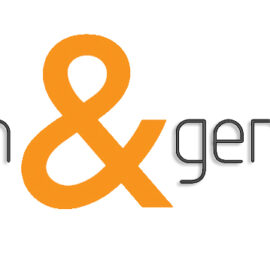
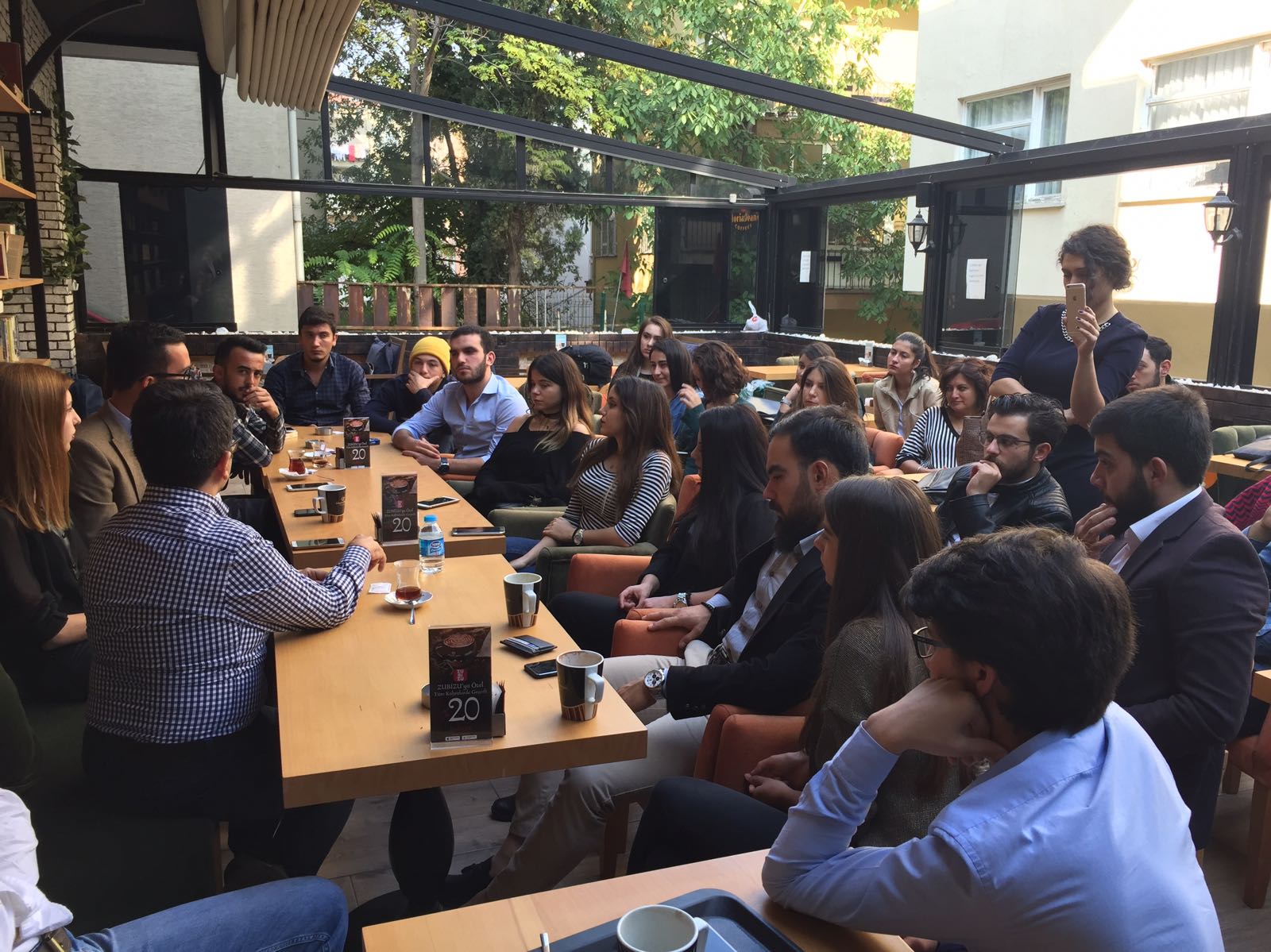 The round tables started with a presentation of MIJARC Europe and the projects it had developed with S&G and it continued with a session in which those attended had the chance to reflect on their own knowledge, attitude and general feelings towards extremism and radicalization. Next, the attendees were involved in a discussion with a professor for Gazi University, trying to find an answer to the question “What can be done in order to prevent or reduce the frequency of these acts?”. The SWOT analysis method was used for the suggested solutions. The entire event enabled the participants to enrich their knowledge on the topic of extremism and to use it in order to bring about a change in attitude in their communities.
The round tables started with a presentation of MIJARC Europe and the projects it had developed with S&G and it continued with a session in which those attended had the chance to reflect on their own knowledge, attitude and general feelings towards extremism and radicalization. Next, the attendees were involved in a discussion with a professor for Gazi University, trying to find an answer to the question “What can be done in order to prevent or reduce the frequency of these acts?”. The SWOT analysis method was used for the suggested solutions. The entire event enabled the participants to enrich their knowledge on the topic of extremism and to use it in order to bring about a change in attitude in their communities.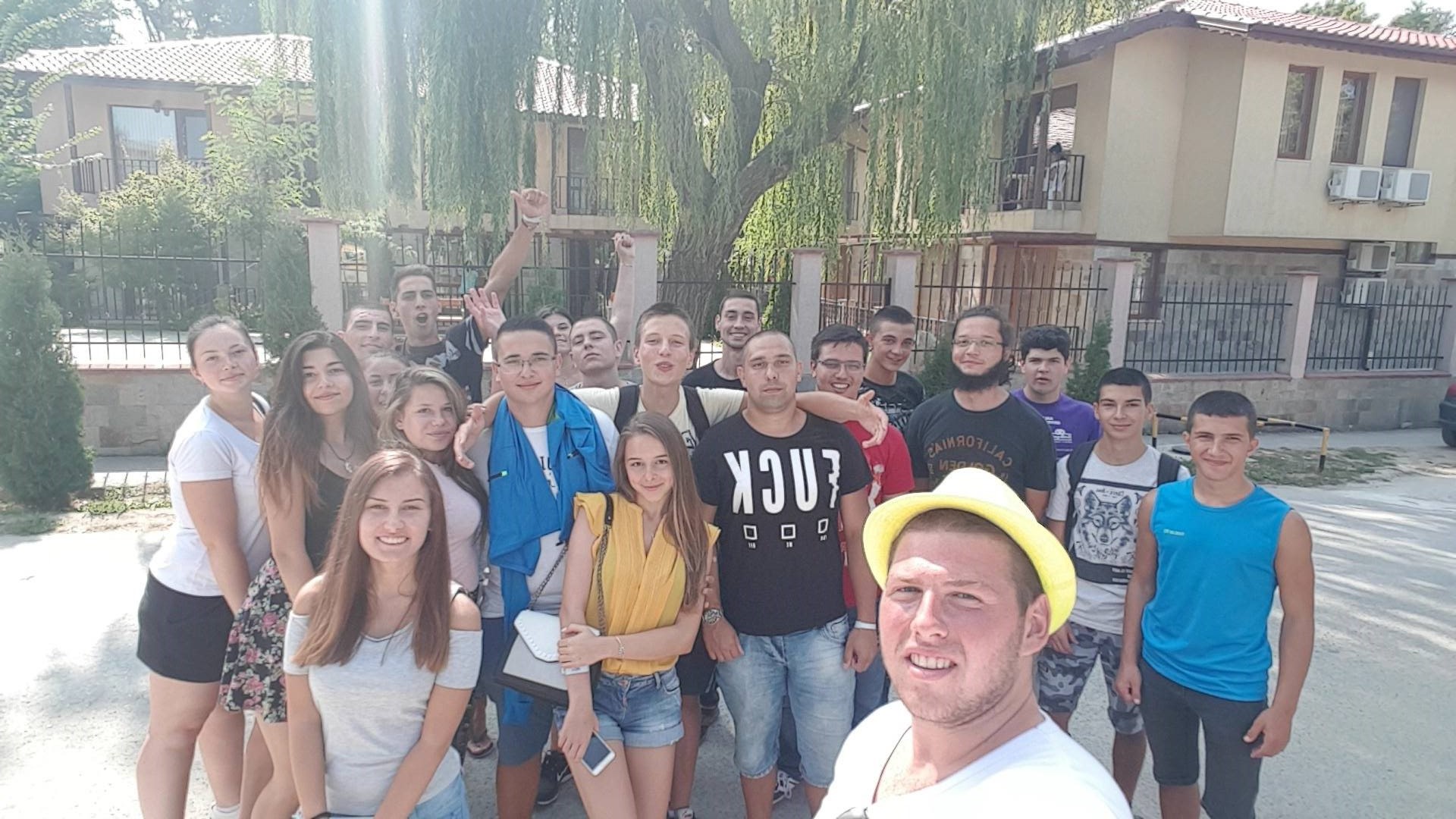
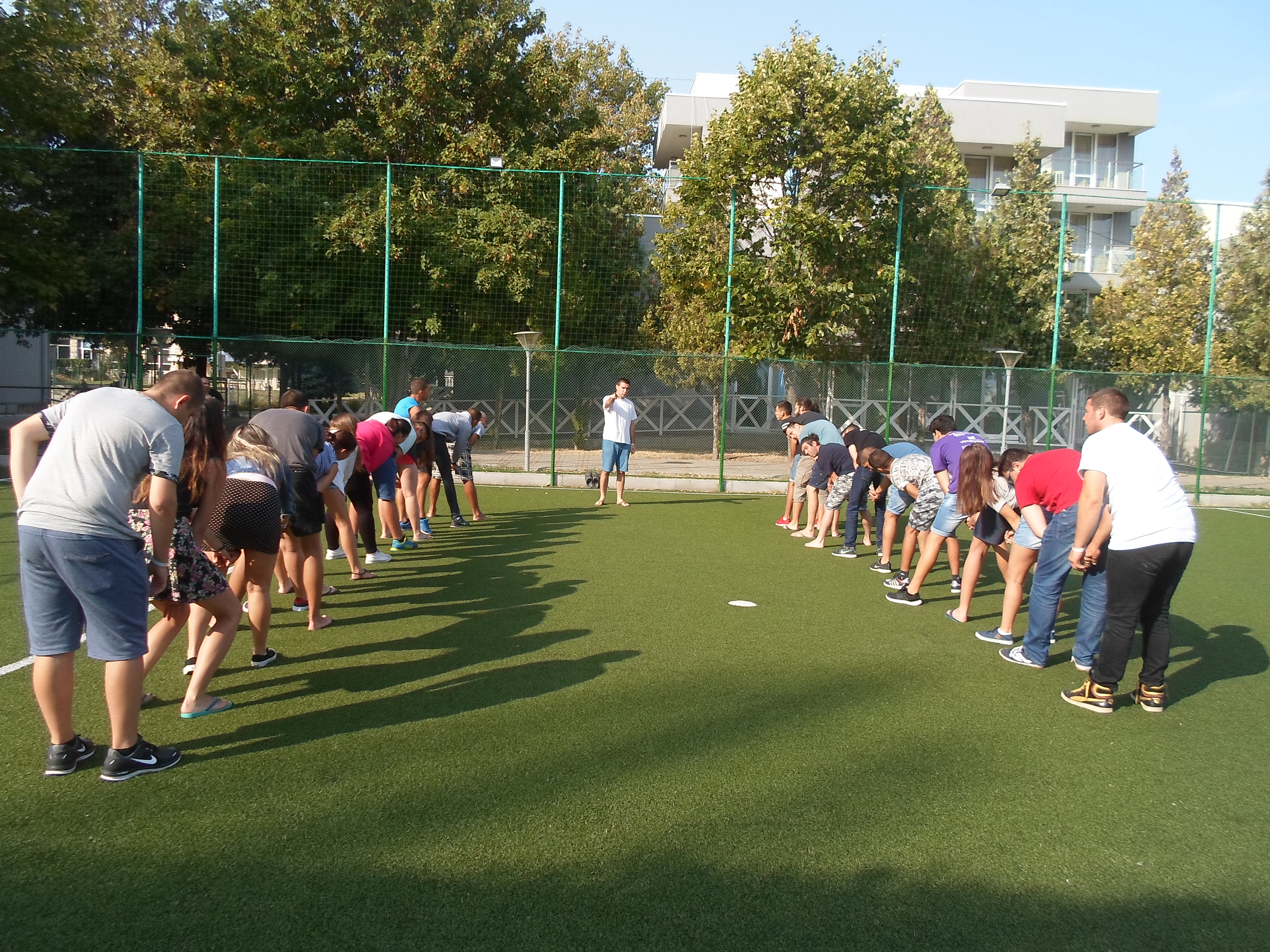 The main project activity was an one week collaboration event between the participants. They were accompanied by a coherently built team of trainers and experts, coming from YMDRAB and their partners in the project (Ardino Municipality, Botevgrad Municipality and The National Youth Forum of Bulgaria). Their collaborative work was entirely based on non-formal education, including: presentations, mixed working groups, role plays, group discussions, field visits and others.
The main project activity was an one week collaboration event between the participants. They were accompanied by a coherently built team of trainers and experts, coming from YMDRAB and their partners in the project (Ardino Municipality, Botevgrad Municipality and The National Youth Forum of Bulgaria). Their collaborative work was entirely based on non-formal education, including: presentations, mixed working groups, role plays, group discussions, field visits and others.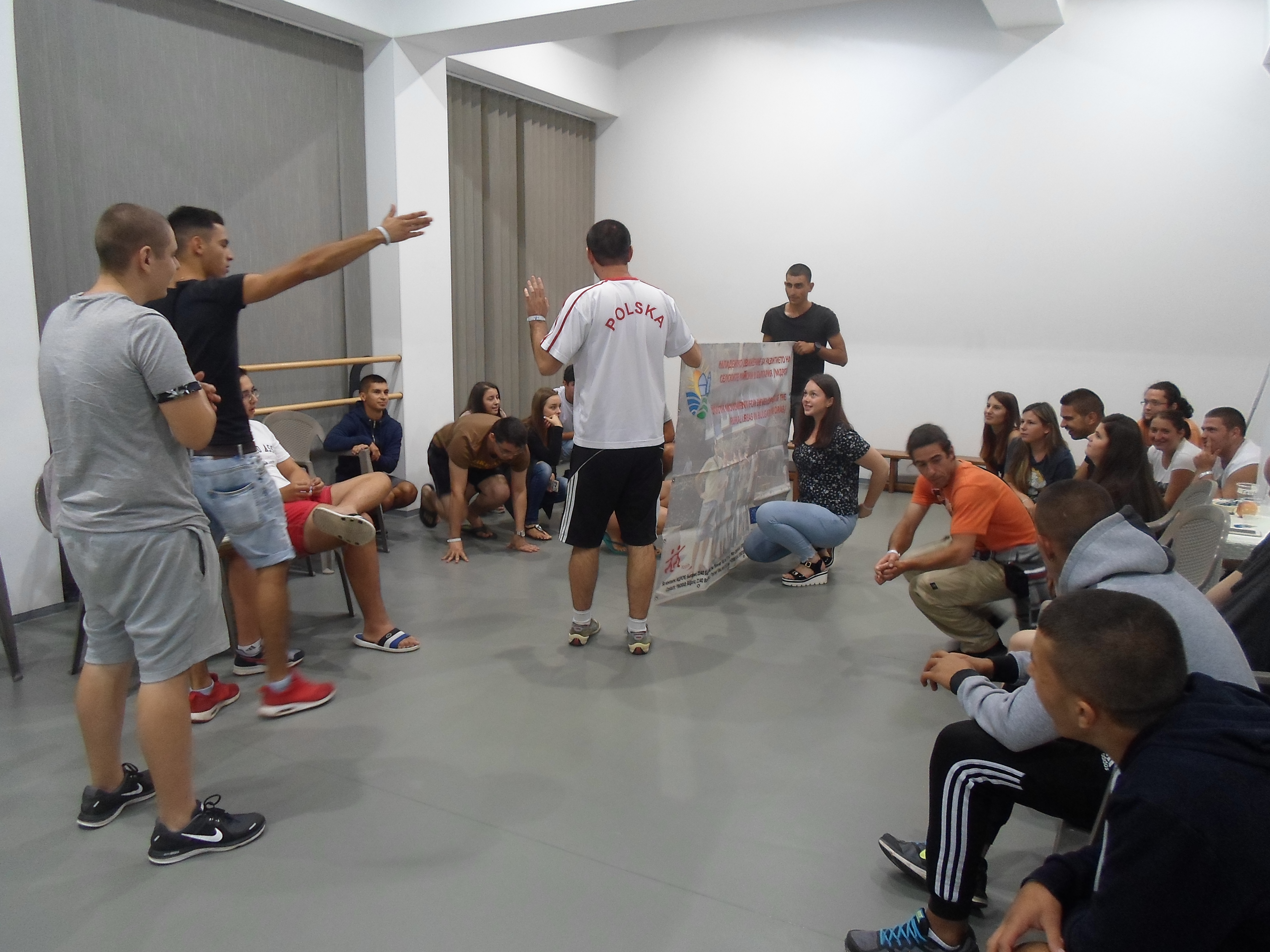 During the event the participants shared and analysed the realities of the Christian and Muslim youngsters in the Bulgarian rural areas and identified the challenges and opportunities to develop more cohesive multicultural and multi religious villages. They had the chance to break mutual stereotypes and prejudices and to develop awareness on concepts such as identity, culture, intercultural sensitivity and human rights (including gender equalities). The experts increased participants’ understanding of the local context (including institutions, authorities, relevant programmes, legislation, ect.), which can facilitate their access to social rights. And finally the participants were able to reflect and identify a set of actions for overcoming the mutual exclusion and for increasing the interaction between Christian and Muslim rural youngsters at local level.
During the event the participants shared and analysed the realities of the Christian and Muslim youngsters in the Bulgarian rural areas and identified the challenges and opportunities to develop more cohesive multicultural and multi religious villages. They had the chance to break mutual stereotypes and prejudices and to develop awareness on concepts such as identity, culture, intercultural sensitivity and human rights (including gender equalities). The experts increased participants’ understanding of the local context (including institutions, authorities, relevant programmes, legislation, ect.), which can facilitate their access to social rights. And finally the participants were able to reflect and identify a set of actions for overcoming the mutual exclusion and for increasing the interaction between Christian and Muslim rural youngsters at local level.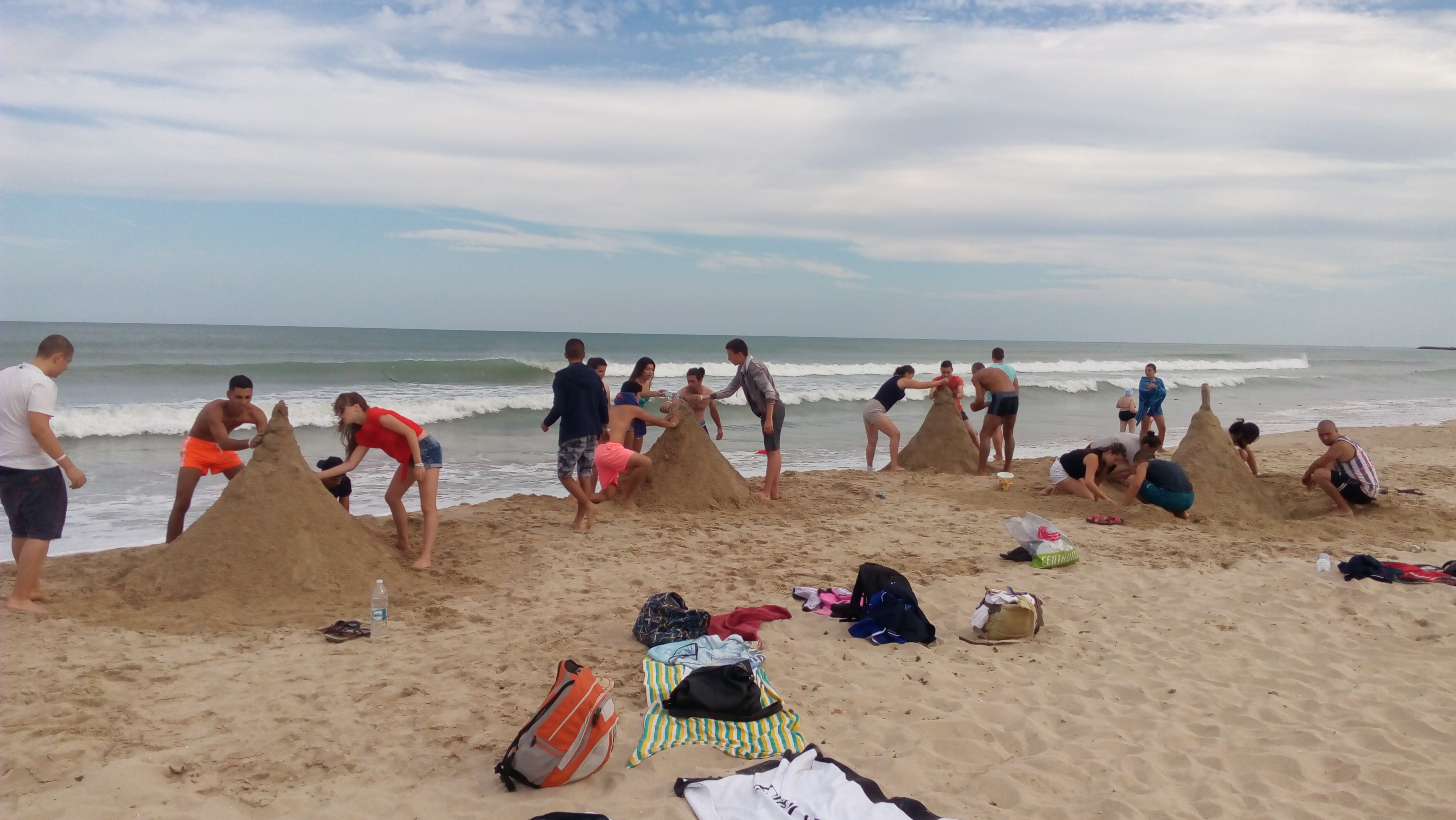 As a result of the collaborative work, at the end of the event a Position paper was developed outlining the results of the project. This document contains the common vision of participants how to encourage the social dialogue and interaction between Bulgarian Christian and Muslim rural youngsters. In parallel to that, two Action groups were established in the local communities of the participants, which will act as a moving force or implementation of effective follow-up activities.
As a result of the collaborative work, at the end of the event a Position paper was developed outlining the results of the project. This document contains the common vision of participants how to encourage the social dialogue and interaction between Bulgarian Christian and Muslim rural youngsters. In parallel to that, two Action groups were established in the local communities of the participants, which will act as a moving force or implementation of effective follow-up activities.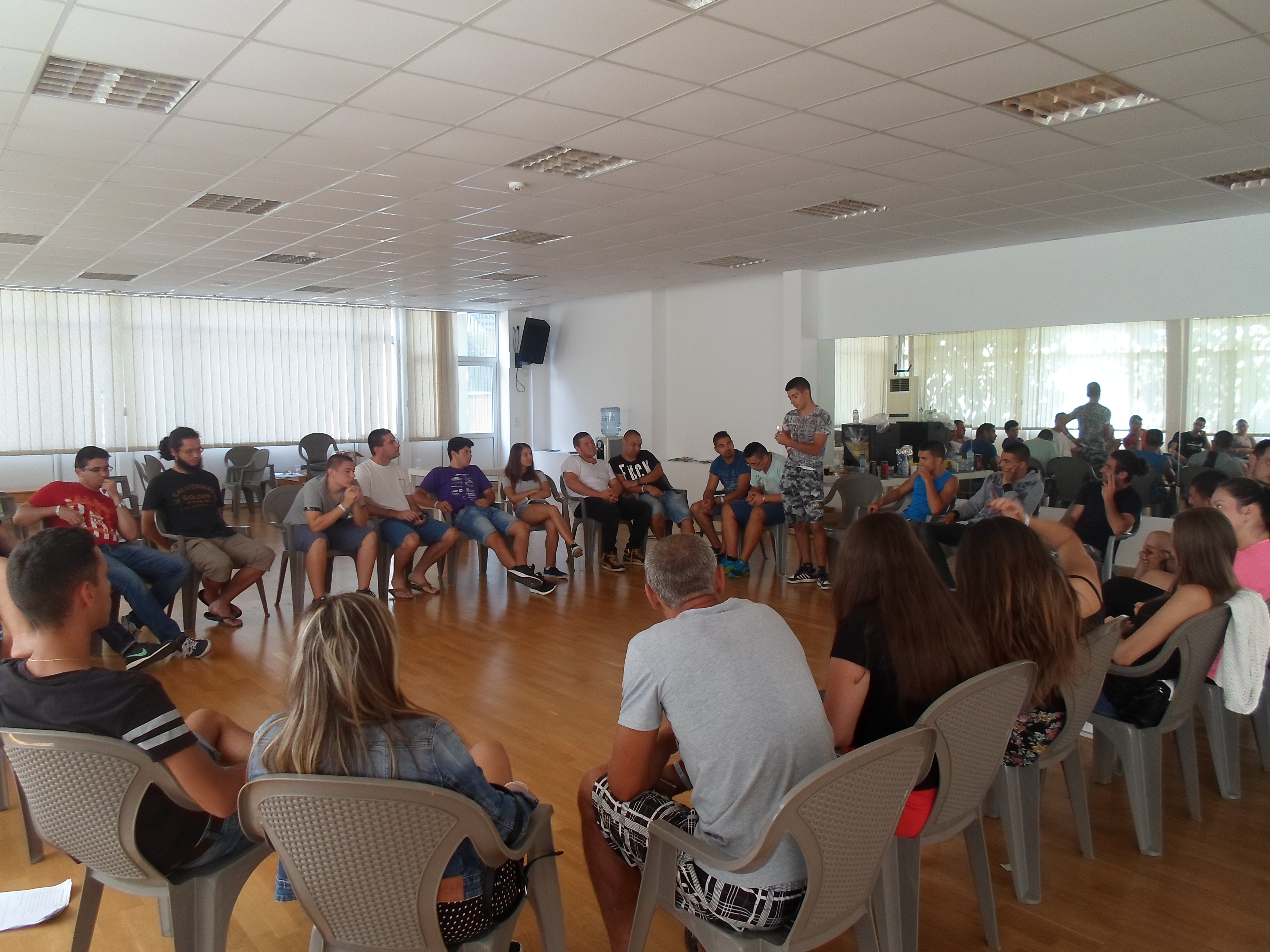 Besides the busy agenda, the participants found time for entertainment – there were various thematic evenings and funny activities on the beach. They also had a trip to Varna which is the European Youth Capital in 2017 and visited an outdoor open library created by local Christian and Muslim young volunteers. All of this inspired them for follow up actions and future cooperation.
Besides the busy agenda, the participants found time for entertainment – there were various thematic evenings and funny activities on the beach. They also had a trip to Varna which is the European Youth Capital in 2017 and visited an outdoor open library created by local Christian and Muslim young volunteers. All of this inspired them for follow up actions and future cooperation.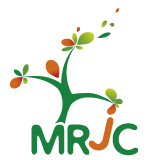 We are member of the MIJARC since its beginning in 1954. If we are still present today it is because it allows us to meet people from different cultures and countries. From local groups to national level MIJARC helps us to share our best practices and meet with other young people around Europe. It permits us to compare the functioning of our organizations, it helps us to make progress. The best meeting places are the European events organized each year, the Seminar, summer camps, training sessions… During those meetings we have formations and discussions and we act together regarding common topics of rural youth across Europe (agriculture, non-formal education, youth employment…). Our coordination gives us the opportunity to have a voice in the European institutions, such as: European Youth Forum for example. In these institutions we try to express the voice of European rural youth. For all this we think MIJARC is very important!!!!
We are member of the MIJARC since its beginning in 1954. If we are still present today it is because it allows us to meet people from different cultures and countries. From local groups to national level MIJARC helps us to share our best practices and meet with other young people around Europe. It permits us to compare the functioning of our organizations, it helps us to make progress. The best meeting places are the European events organized each year, the Seminar, summer camps, training sessions… During those meetings we have formations and discussions and we act together regarding common topics of rural youth across Europe (agriculture, non-formal education, youth employment…). Our coordination gives us the opportunity to have a voice in the European institutions, such as: European Youth Forum for example. In these institutions we try to express the voice of European rural youth. For all this we think MIJARC is very important!!!!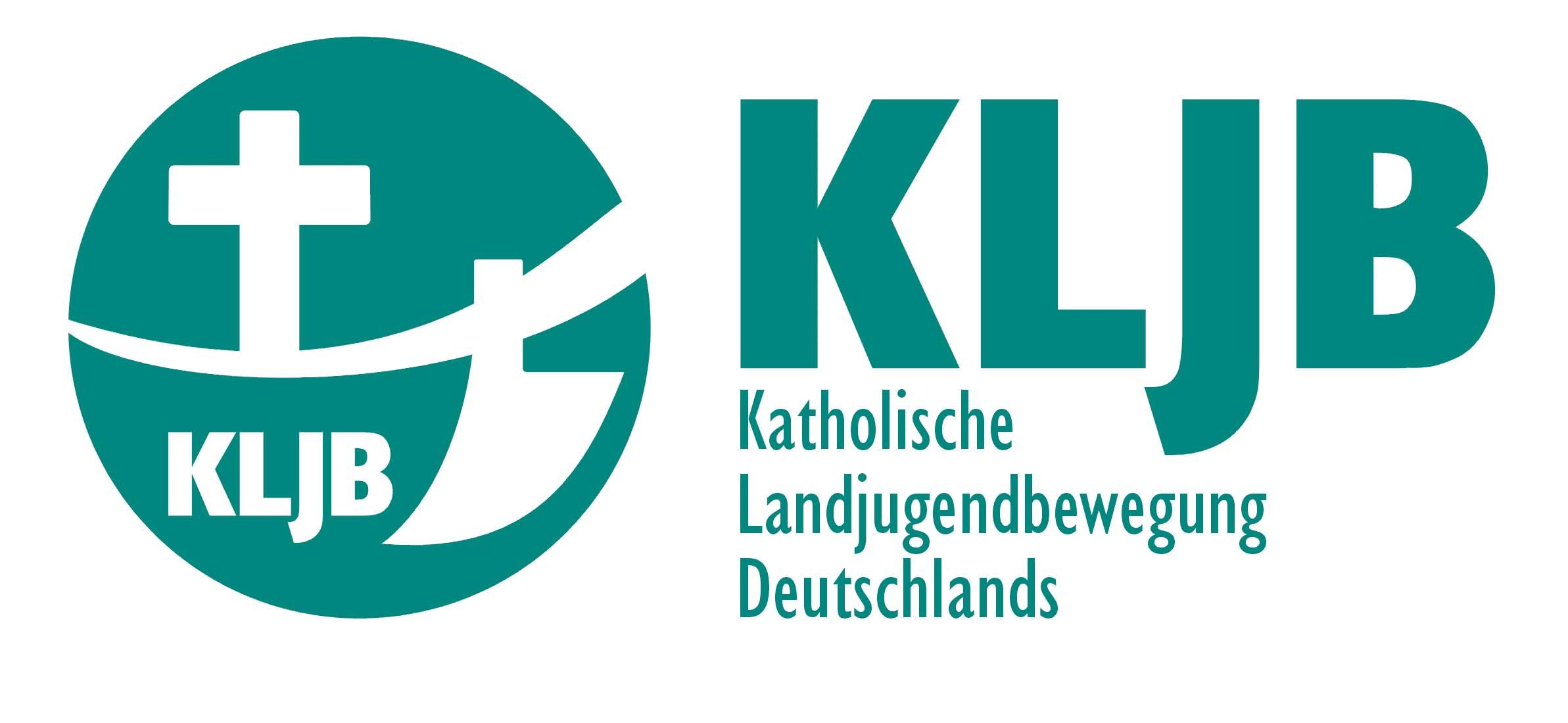 For the German rural youth MIJARC shares a lot of opportunities: We can influence European politics as a huge international network. We can develop rural life by discussing our visions with other partners. And we can give our members the chance to get to know Europe by meeting other young Europeans. Imagine a summer camp where you can meet young people from Malta, Portugal, Poland or France… It’s always a good exchange about the future of rural life!
For the German rural youth MIJARC shares a lot of opportunities: We can influence European politics as a huge international network. We can develop rural life by discussing our visions with other partners. And we can give our members the chance to get to know Europe by meeting other young Europeans. Imagine a summer camp where you can meet young people from Malta, Portugal, Poland or France… It’s always a good exchange about the future of rural life!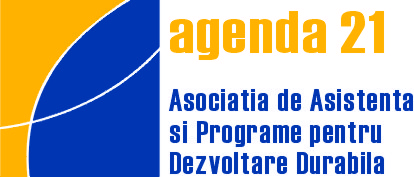 We are members of MIJARC Europe because we resonate with their
We are members of MIJARC Europe because we resonate with their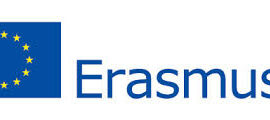
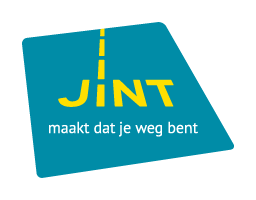

 The visit took place between
The visit took place between 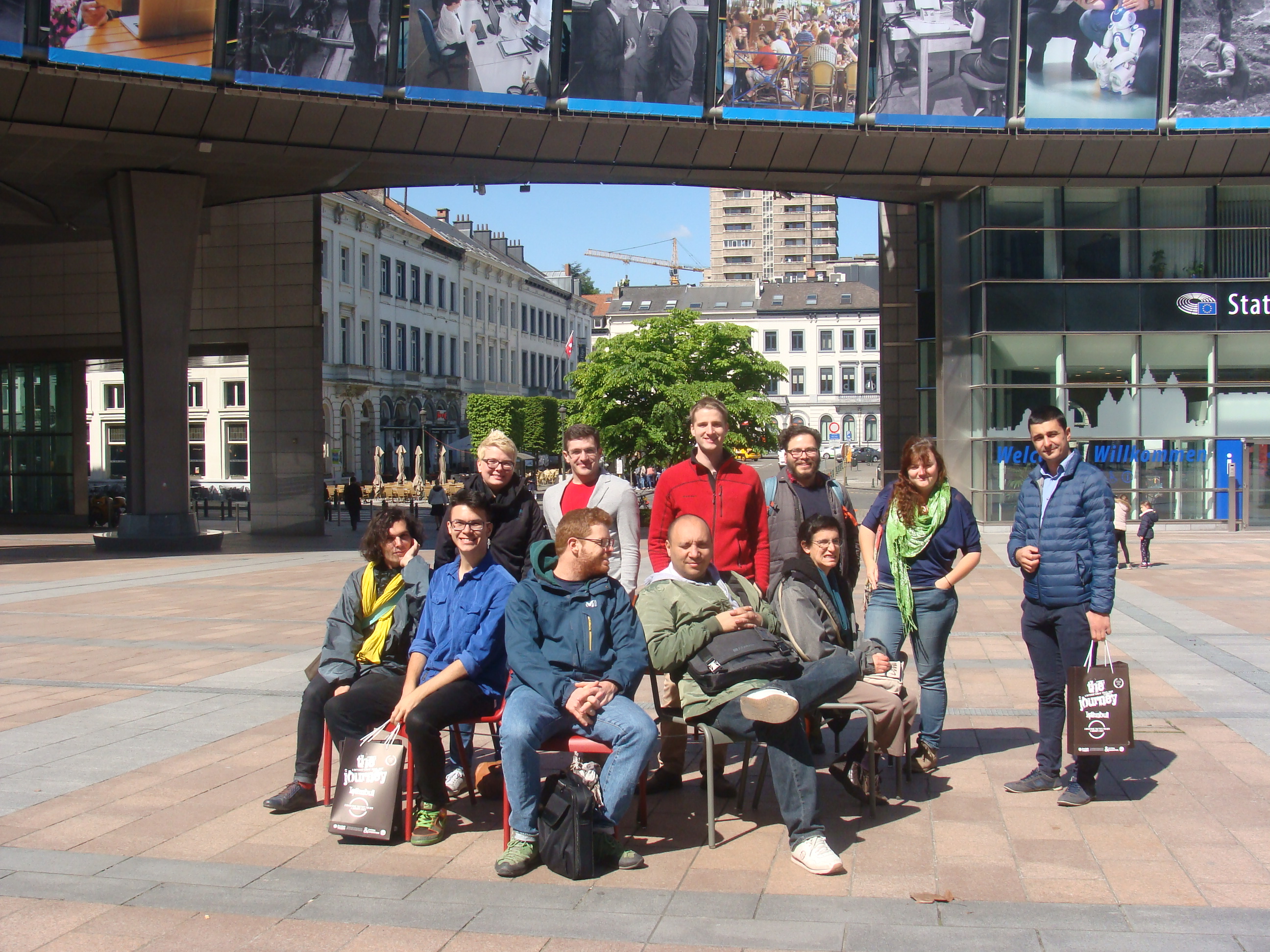 The
The 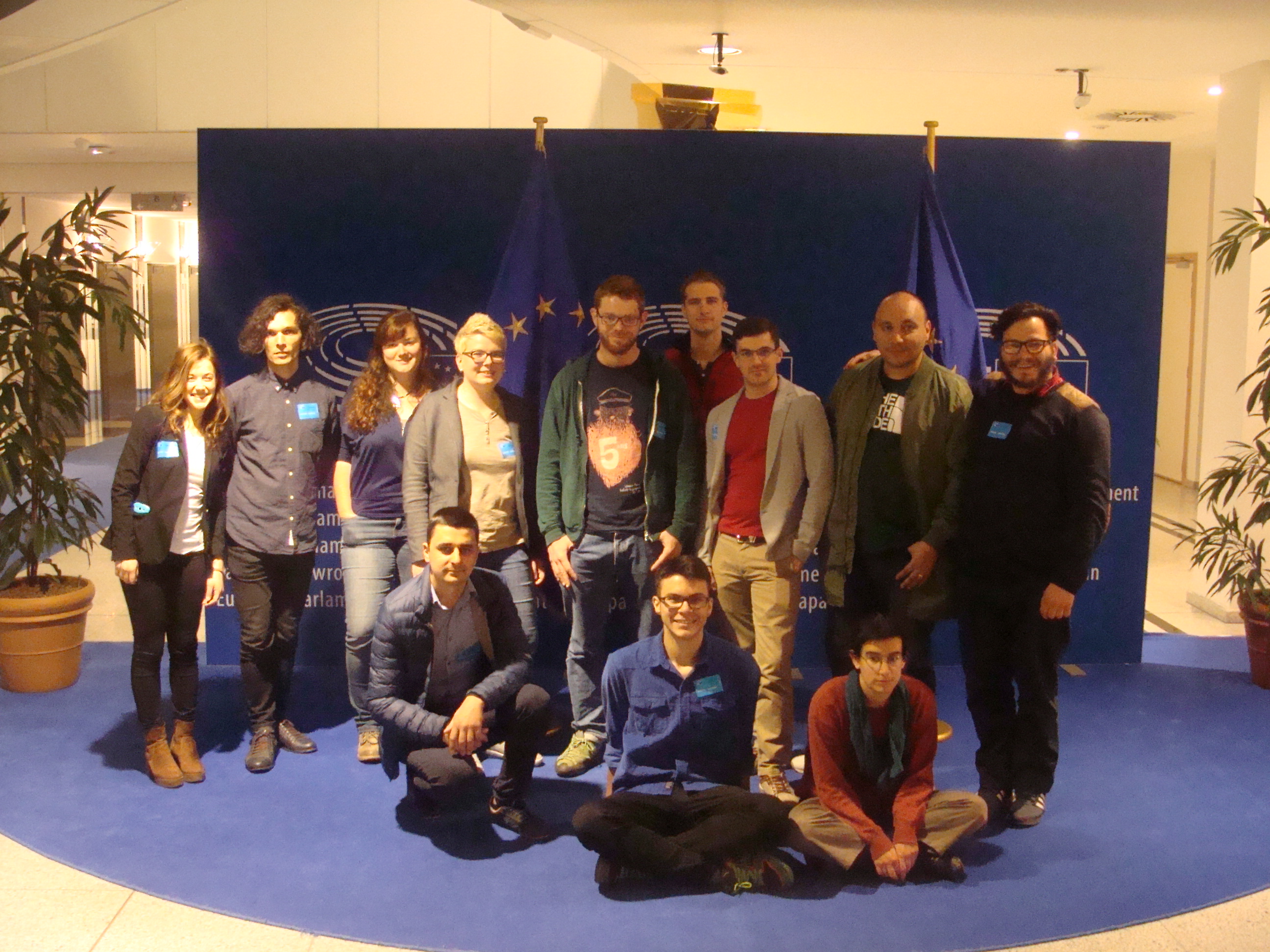 The last day
The last day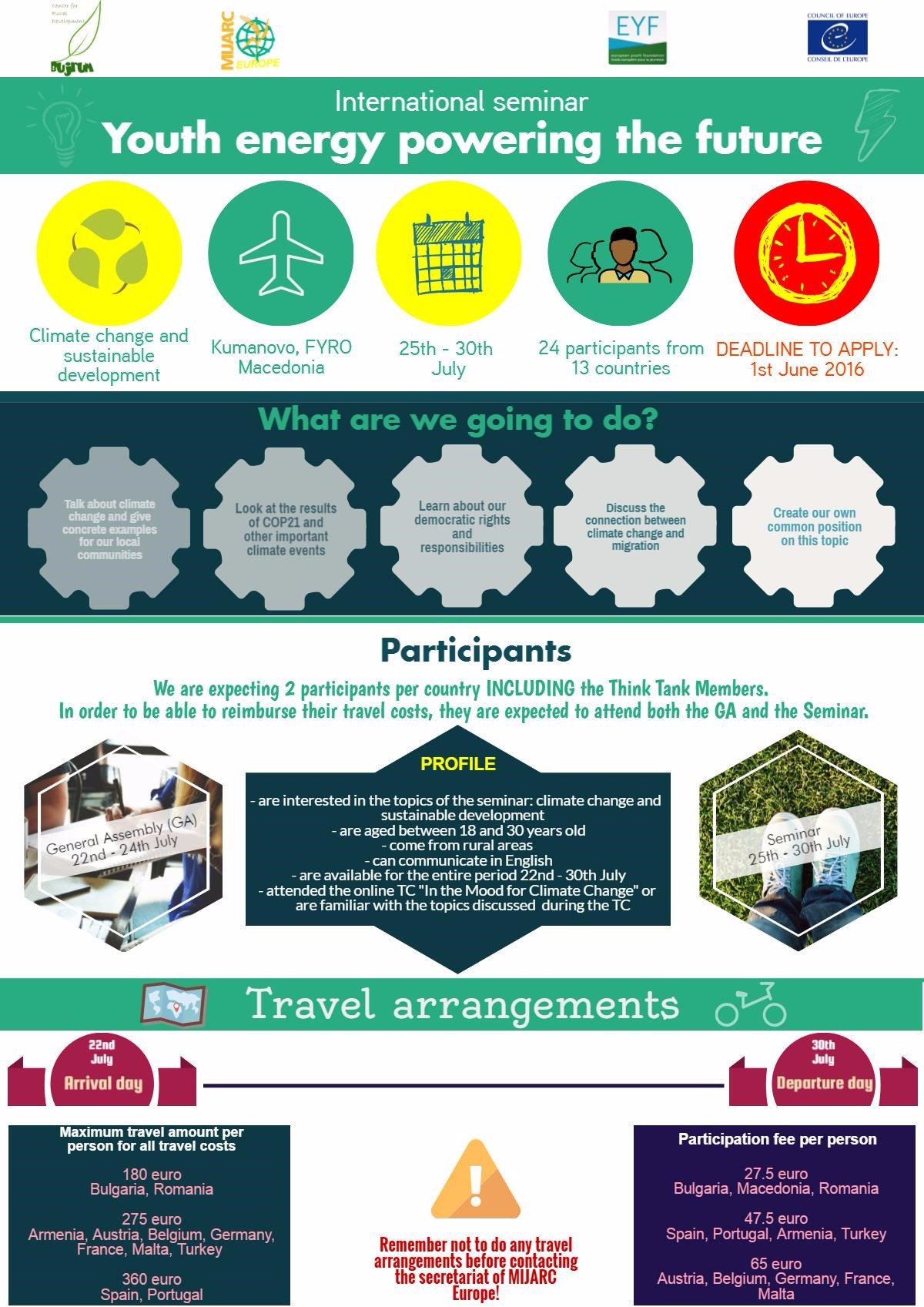 As the first face-to-face activity included in our annual work plan, the international seminar represented its main phase. It took place between
As the first face-to-face activity included in our annual work plan, the international seminar represented its main phase. It took place between  he third day was dedicated to field visits and meeting with an expert on migration and refugees. The field visit took the participants to the Ancient Megalithic Observatory of Kokino and it was led by a geography teachers from a high school in Kumanovo. The idea of the visit was to reflect on the influence of man on his living environment, the adaptations that he had made as well as the effects of the geological and climate factors to this site. In the afternoon, the participants met Aleksandra Davidovska, an activist who started working as a volunteer when the migration crisis in Macedonia began and ended up working for an international organisation on the topic of migration and refugees. Her input was intense and provided a great correlation with the lectures in the online TC that focused on climate change-caused migration.
he third day was dedicated to field visits and meeting with an expert on migration and refugees. The field visit took the participants to the Ancient Megalithic Observatory of Kokino and it was led by a geography teachers from a high school in Kumanovo. The idea of the visit was to reflect on the influence of man on his living environment, the adaptations that he had made as well as the effects of the geological and climate factors to this site. In the afternoon, the participants met Aleksandra Davidovska, an activist who started working as a volunteer when the migration crisis in Macedonia began and ended up working for an international organisation on the topic of migration and refugees. Her input was intense and provided a great correlation with the lectures in the online TC that focused on climate change-caused migration.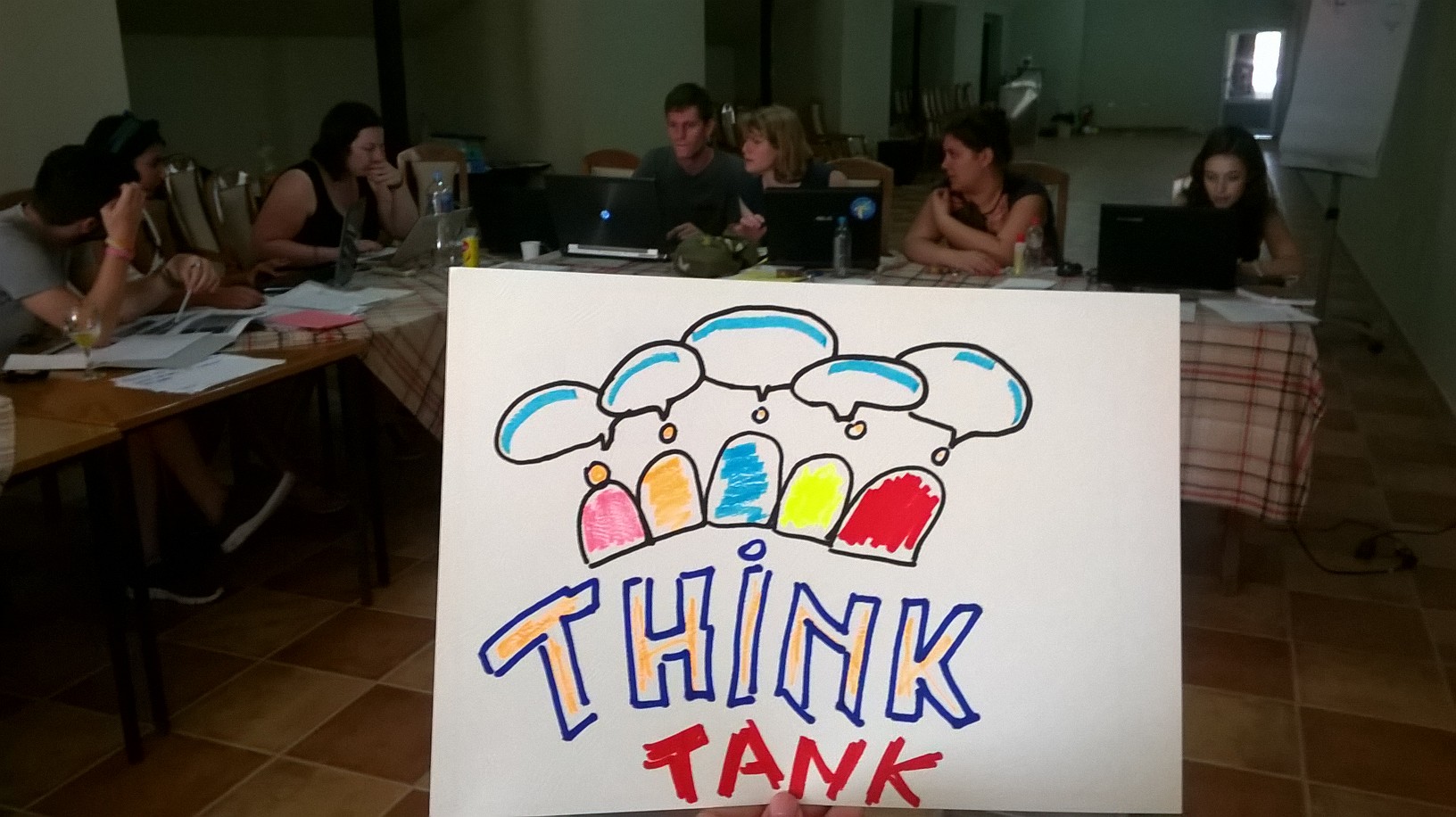 The Think Tank, of course! The Think Tank was the team who prepared the contents of the seminar and facilitated the sessions. There were all young volunteers who responded to a call of interest launched by MIJARC Europe in the network of its member movement. The Think Tank members were: Veronika Nordhus (Germany, member of the European Team), Jeroen Decorte (Belgium, member of the European Team), Magdalena Rapeshovska (Macedonia), David Vermeulen (Belgium), Bledi Cami (Turkey) and Daniela Ordowski (Germany). The Think Tank was supported by the Secretariat of MIJARC Europe, represented by Alexandra Solomon (Romanian, living in Belgium) and by Florina Potirniche (Romania).
The Think Tank, of course! The Think Tank was the team who prepared the contents of the seminar and facilitated the sessions. There were all young volunteers who responded to a call of interest launched by MIJARC Europe in the network of its member movement. The Think Tank members were: Veronika Nordhus (Germany, member of the European Team), Jeroen Decorte (Belgium, member of the European Team), Magdalena Rapeshovska (Macedonia), David Vermeulen (Belgium), Bledi Cami (Turkey) and Daniela Ordowski (Germany). The Think Tank was supported by the Secretariat of MIJARC Europe, represented by Alexandra Solomon (Romanian, living in Belgium) and by Florina Potirniche (Romania).